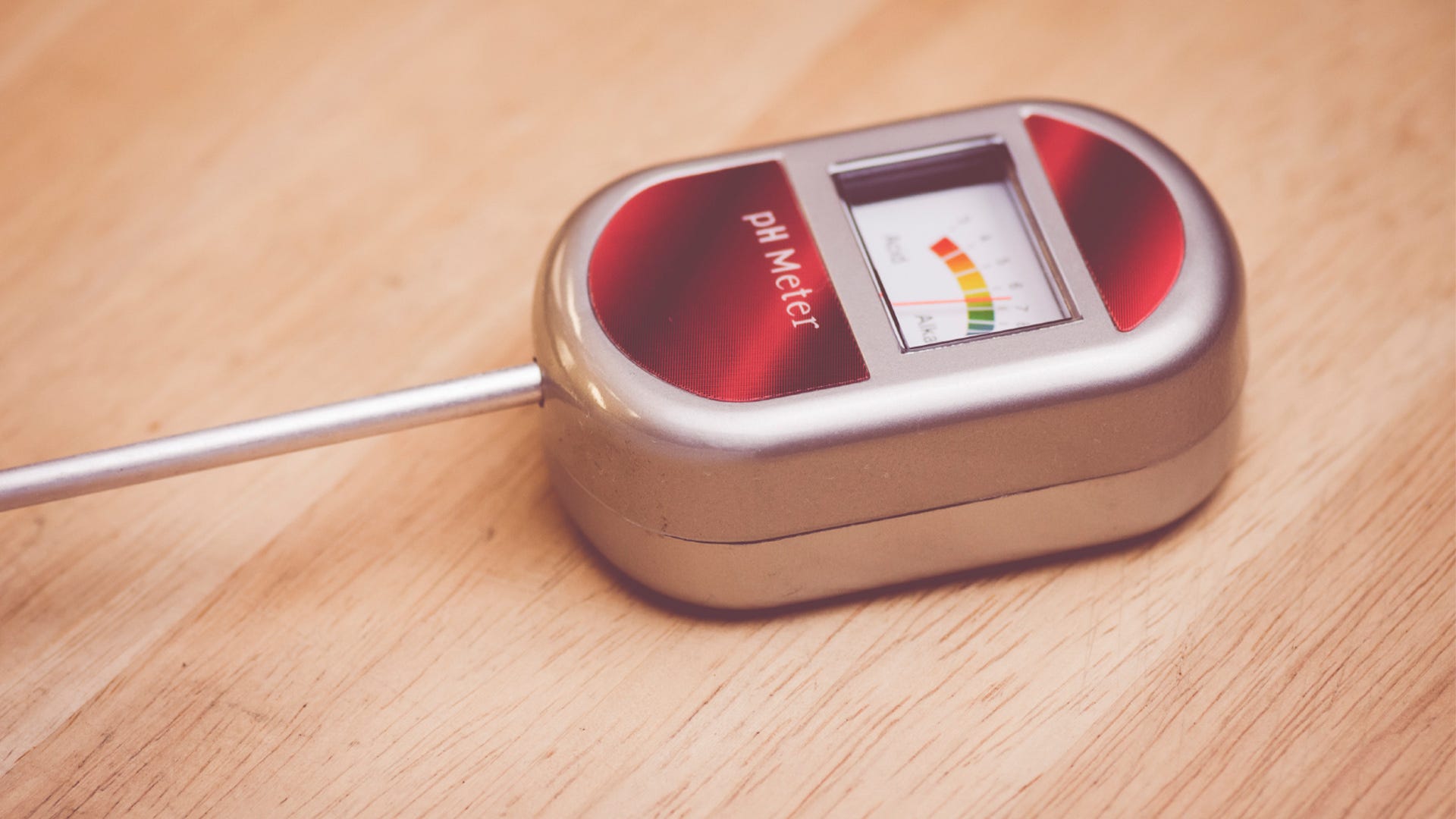
For many people, pH is a remnant from their high school science classes and has long been forgotten about. However, for any novice or serious gardener or farmer pH plays a crucial role in the success of a plant’s ability to absorb nutrients and grow. If the soil is too acidic or alkaline, the plants will not have access to the nutrients they need to grow and thrive. SaferBrand offers a variety of ways to help make sure your soil is perfectly balanced for optimum growing and crop yields.
What Is pH?
In simple terms, pH stands for potential for hydrogen because pH is a measurement tool used to determine the concentration, or amount, of hydrogen in a solution or area. pH is measured on a scale from 1 to 14. Pure water is considered neutral and has a pH of 7. Numbers 1 through 6 on the scale are considered acidic with 1 being the most acidic. Numbers 8-14 are considered alkaline with 14 being the most basic/alkaline.
For example, stomach acid has a pH of 1 and is extremely acidic while orange juice falls at number 3 on the scale. Bleach falls at 13 on the scale just above soapy water at 12. pH will vary from region to region and climate to climate due to its interaction with local rocks, plants, and weather/environmental conditions.
How is pH Used in Gardening?
While pH most frequently comes up for discussion in scientific and educational circles, it is crucial for gardening. Any small shift on the scale can irreparably damage your plants. While some plants may be able to withstand some differences in pH, many more are very sensitive to change. This is due to a plant’s ability to intake nutrients from the soil in which they are planted. Each type of plant will require a specific pH and will usually fall closer to the middle of the range. Research your plants carefully and determine whether they are more likely to thrive in an acidic or alkaline environment. A soil test is the best way to determine your soil’s pH.
What Happens When There is an Unbalanced pH?
Plants need an ideal environment in order to grow properly. Many factors play into this such as the amount of sunlight and water, nutrients available in the soil, and temperature. When the soil pH is too acidic or alkaline for a particular plant, there are a number of things that could happen.
- Seeds may not grow at all.
- Plants might only grow to a fraction of their average size.
- Plants may not bear fruit or flowers as frequently as nourished plants.
- Plants could become so malnourished they wither and die

How Do You Fix It?
No one wants their hard work to wither away over something as easily remedied as soil pH. The first step to growing the garden of your dreams with a perfectly balanced pH level is to measure the pH levels of your yard. Most household plants, including edible plants, fall on the slightly acidic side of the scale at or around 6.5. If your yard is much more alkaline, such as those located near limestone deposits, adding standard fertilizers, such as Safer Brand’s Lawn Restore to the yard generally make the soil more acidic. Certain tilling methods can also increase a soil’s acidity by removing some organic material near the top of the soil levels. Mulching and adding calcium is a great way to battle a yard that is too acidic.
The key to changing pH is patience. Apply your desired treatments and wait two to three months for the products to fully work. After the product has had time to fully work, check the pH levels again and determine whether or not another treatment is needed. Soil levels will not change too drastically without major chemical treatments. So unless you really want to overhaul your entire yard try to aim for small, more sustainable changes to see the best results. Picking plants that are best suited for your soil’s natural pH levels will also be an ideal solution.
Want More Gardening Tips?
Want to learn more about how Safer Brand products can revolutionize the way you garden? Be sure to pay a visit our Facebook page for product information, tips, contests, and more! Want to be in the loop? Don’t forget to sign up for our e-newsletter to stay up to date on the all of the latest products and exclusive updates on our gardening products.




